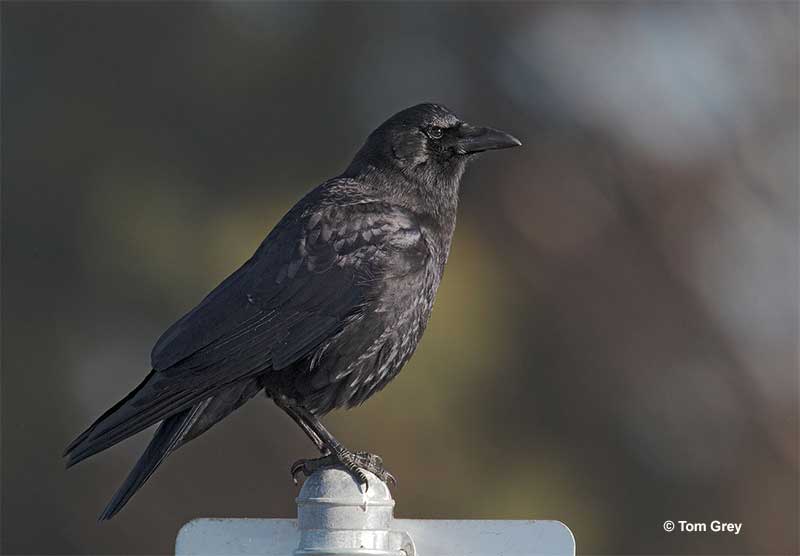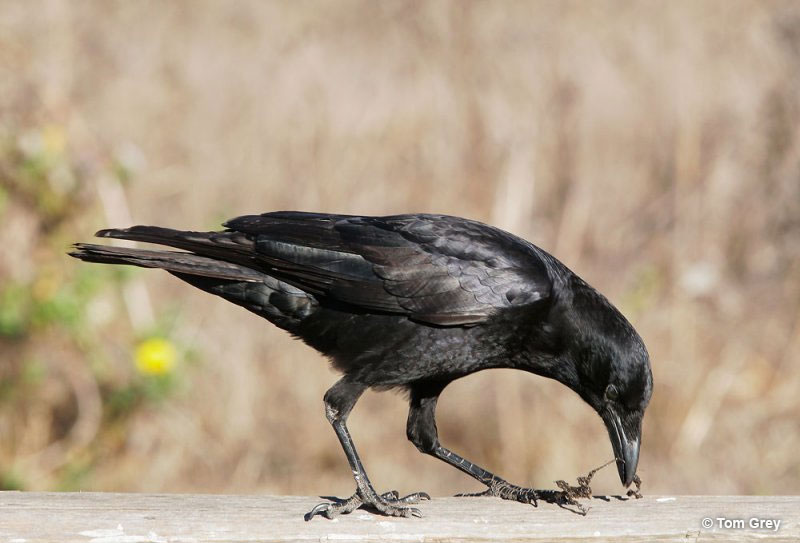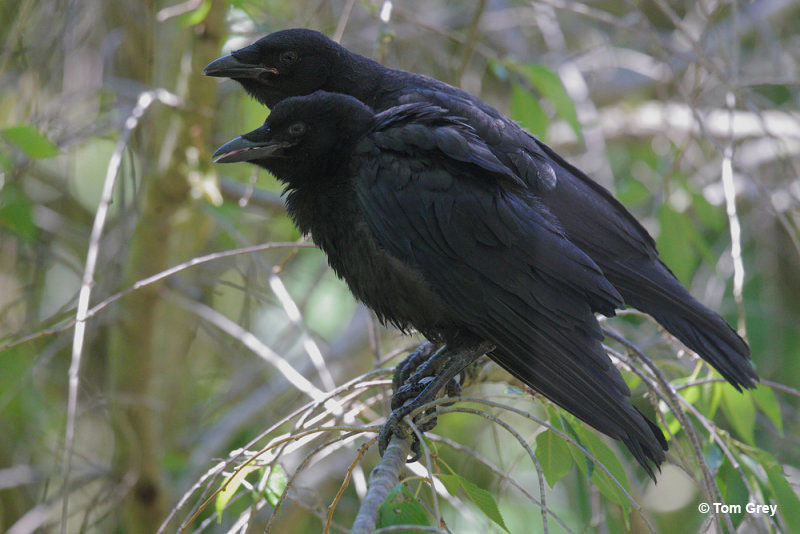
Curious about the lifespan of crows? Contrary to misconceptions, they don’t live for hundreds of years.
These intelligent and adaptable birds typically live 5-8 years in the wild, with some reaching up to 20 years or more. Let’s dive into the factors influencing their longevity and uncover the truth behind their lifespan.
On this page
How Long Do Crows Live?
Crows have a relatively long lifespan compared to many other bird species. In the wild, they live for 5-8 years on average, but their lifespan can vary significantly depending on factors like food availability and their ability to evade predators.
It is not uncommon for individuals to live for 15-20 years or even older. Their longevity is attributed to their high intelligence, adaptability, and social structures. In captivity, they may live around twice as long due to better conditions.

The most dangerous time for them is before they reach the one-year mark.
Many young crows do not survive due to various factors, including predation, accidents, and disease. Research and estimations suggest that over 50% of young crows die within their first year.
Crows reach sexual maturity around the two-year mark or even later. Mortality rates are still relatively high for younger crows before they reach this stage, primarily due to predation and competition for resources.
The mortality rate during these early years (from hatching to sexual maturity) can vary widely depending on environmental conditions. Once crows reach adulthood and achieve sexual maturity, their mortality rate decreases. The yearly survival rate of breeding adults is around 93%.
But what exactly threatens their existence?
Dangers
Crows, like many other bird species, face a range of dangers and threats in their natural environment. These dangers can vary depending on the specific habitat, location, and age, but here are some of the most common ones.
Crows are vulnerable to predation from larger birds of prey such as hawks and owls. Additionally, reptiles like snakes and mammals like raccoons, foxes, and cats may also prey on eggs, chicks, or even adult crows if they can catch them. They are often mobbed and attacked by other birds that perceive them as threats.

Like all wildlife, crows are susceptible to various diseases and parasites. Common diseases that affect them include West Nile virus and avian pox. Parasites, especially internal ones can also weaken and harm crow populations.
While crows have adapted well to human environments like cities, their populations can still be threatened by habitat loss and changes that impact their food sources and nesting areas. They are especially vulnerable to food scarcity in the early stages of their life. Additionally, those living in urban areas are at a greater risk of colliding with vehicles and man-made structures.
The birds sometimes also come into conflict with humans, especially in urban and agricultural areas. They may be viewed as pests due to their scavenging behavior or perceived threats to crops or other wildlife. Because of this, people sometimes take measures into their own hands and use poison or other strategies to cull crow populations.
The Life Cycle of Crows
There are two common crow species in North America: the American Crow and the Fish Crow. If you exclude their range differences, then their life looks relatively similar. They build large nests near the top of trees in crotches or on a horizontal branch. The female then lays somewhere between 3 to 8 blue-green eggs with gray or brown blotches. Incubation takes 16-19 days.
After the chicks hatch, both parents feed and take care of them.
American Crows are especially social with the pair’s offspring from the previous two years helping them raise the new clutch. All members of the family help fend off predators and intruders. The young leave the nest at around 3-5 weeks of age, depending on the species.
Juvenile crows continue to learn from their parents and other members of their family or social group. They may join other young crows in small groups and explore wider areas.
Young American Crows do not breed until they are at least two years old, and most do not breed until they are four years old or older. They generally have one, sometimes two broods in a breeding season.
Fun Facts
- In addition to long lives, they also have great memories. They are capable of holding grudges and recognizing faces even after a few years.
- American Crows may belong to up to three kinds of social groups: family groups, winter roosts, and floater flocks. Floater flocks form during the breeding season and are mostly comprised of individuals who lack mates. They roam safely in a group while trying to find mates or new vacant territories.
- The oldest Fish Crow on record lived to be 14 years and 6 months old while the oldest wild American Crow was 29 years old.
- According to some claims, the oldest captive crow was called Tata and lived to be 59 years old. These claims cannot be backed without a doubt, but it is possible. However, the oldest captive crow on record was Edgar from the Saginaw Children’s Zoo who lived to be almost 26 years old.
- Sometimes, the gene bingo goes wrong. If you’ve ever seen a crow with some white patches or a completely white crow, it’s probably leucistic or albinos. Albino birds do not live for long, since they are an easy target.
Frequently Asked Questions
Can you keep crows in captivity?
It is only legal to keep a crow if you have acquired a non-native species as a pet or if you have a permit for it. The legality also depends on where you live. However, it is important to keep in mind that they are very social, vocal, and energetic creatures.
Related: Is it possible to befriend crows
What is the oldest recorded age of a crow?
The oldest recorded age of a crow in the wild was 29 years old and in captivity 59 years old.
Does a crow’s expected lifespan depend on the species?
Crow’s specific expected lifespan depends on the species, but it generally varies only by a few years.
Can crows live 100 years?
Crows cannot live for 100 years. The oldest reported age was 60 years and they can routinely reach ages of over 20 years old, but claims of them living for a hundred years are unsubstantiated.
Why are crows associated with death?
Crows are associated with death due to several reasons, such as historical and cultural associations, their black plumage, and their tendency to gather around road-kill and dead bodies.
